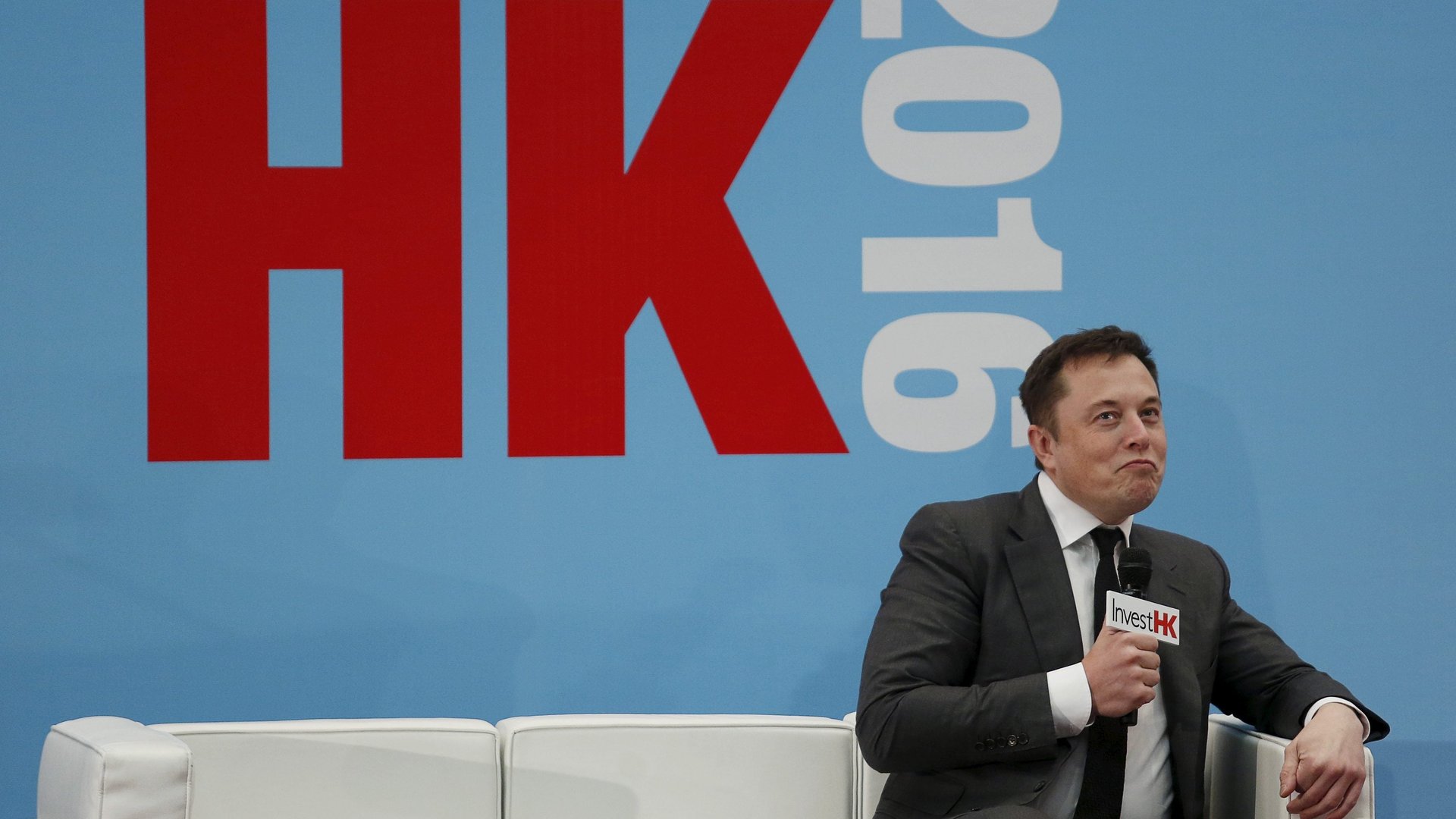Tesla’s sales never recovered after Hong Kong cut a tax break
For a long period, Tesla was the electric car in Hong Kong. Other brands’ annual sales couldn’t compete with Tesla’s in a single month—until the local government took away a generous tax incentive.


For a long period, Tesla was the electric car in Hong Kong. Other brands’ annual sales couldn’t compete with Tesla’s in a single month—until the local government took away a generous tax incentive.
In the more than two years since April 2017, the month the city sharply reduced a tax break for purchases of electric cars, only 180 new Teslas have been registered with the Hong Kong Transport Department (HKTD). The new policy, which was aimed at reducing congestion, capped a waiver of Hong Kong’s hefty vehicle registration tax that can equal a car’s sticker price, and made a new Model S more than 1.5 times more expensive.
Tesla saw a spike in people rushing to buy a Tesla car in March that year—when the full waiver meant the price was effectively less than $75,000 (HK$570,000). As many as 2,939 new cars were registered that month, followed by only 32 for the rest of the year.
The registrations are a decent proxy of first-hand sales as cars need to be registered to drive on the road. But Tesla also sells used cars, which aren’t captured in this data. The reduction of the tax rebate may have favored their sales—a five-year-old Model S with a driving distance of around 25,000 kilometers (16,000 miles), for example, is HK$307,500 (US$39,000), or less than half the starting price of a brand new one. Tesla didn’t respond immediately to queries about the sales rebate and used car sales data.
Hong Kong should be a pretty good place for the adoption of high-end electric cars, since its limited size mean range isn’t an issue, while the city’s wealth and love for luxury means sought-after cars like Mercedes-Benz and BMW are everywhere. Tesla founder Elon Musk once called it a “beacon city” for electric cars.
But the city’s well-connected public transport system means car ownership isn’t really necessary—car ownership in the city of seven million stood at about 105 vehicles per 1,000 people (pdf, p. 1) as of 2018. For comparison, China, the world’s biggest auto market but also a less wealthy place, has 172 vehicles per 1,000 people.
Despite the reduction in tax break, the city still saw EV sales grow in 2017, as people rushed to get their purchases in before the deadline. They’ve remained largely static till then, even though the reduced tax break for first-time EV buyers remains in place until 2021. Tesla’s head start means it accounts for about nearly half of Hong Kong’s 11,500 registered electric cars registered through May.
Since the tax policy changed, Korea’s Hyundai and Japan’s Nissan are doing better. In May, Nissan and Hyundai registered 109 and 31 electric cars respectively in Hong Kong, while Tesla registered zero.
Tesla is now focusing deeply on a more favorable policy environment, building a factory in Shanghai, where multiple state-owned banks have reportedly offered loans to build the factory at an interest rate lower than the one-year rate published by China’s central bank. Currently all Tesla’s cars sold in China are imported, and subject to a 15% import tariff as well as a 10% purchase tax that doesn’t apply to locally made electric vehicles.
The factory, the first wholly foreign-owned one after China relaxed investment rules in the industry, is expected to roll out its first car in November in a market where customers still enjoy a tax break for buying domestic electric cars, even though subsidies to manufacturers are going away.
Looking for more in-depth coverage? Sign up to become a member and read more in-depth coverage of China’s electric-car boom in our field guide.